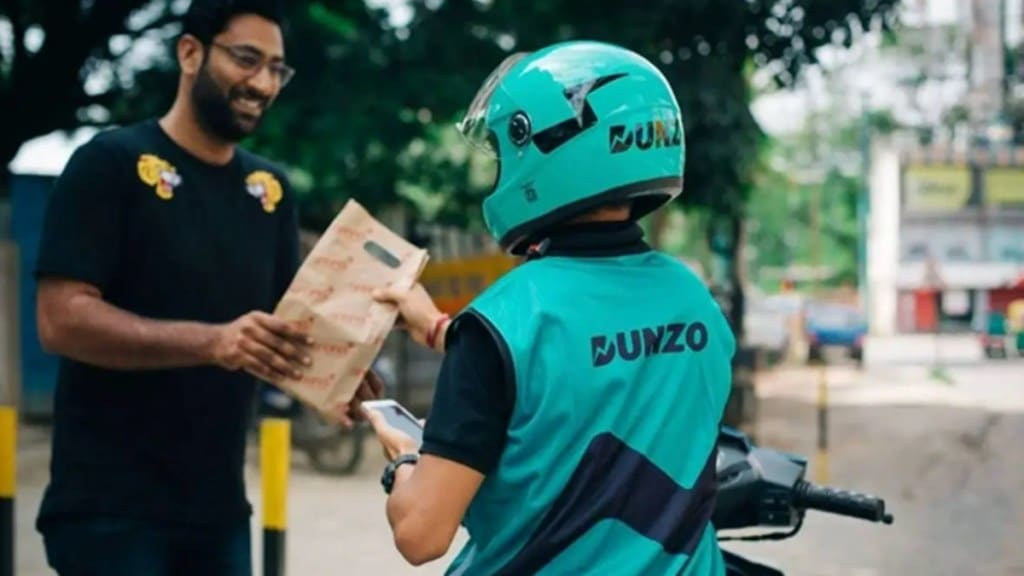At a time when Reliance-backed Dunzo, a quick-commerce platform, is looking to cut costs and put itself on a path to profitability, Dalvir Suri, co-founder of the company, told FE that the startup will increase focus on sourcing products through its marketplace model, rather than fully relying on its network of dark stores.
Quick commerce companies typically operate two broad models: a marketplace model where companies pick up products from a retail store nearby and deliver to customers as and when they are ordered, resulting in lower inventory and real estate costs but earn slim margins and give up control of the entire supply chain.
Also read: Video: FY23 budget to bring cultural change in MSMEs’ payment issue, says expert
The other arrangement is when these startups operate their own dark stores where they stock up products in-house and fully control the supply chain, thereby squeezing in better margins, analysts said. In fact, Blinkit (earlier Grofers) had tried the marketplace model in its initial years but moved to an inventory-led approach (its own dark stores) around 2018, which resulted in its margins doubling to around 18%, as per reports.
Dunzo currently operates a mix of both models, where it delivers through dark stores in some areas but, through its partnerships, runs the marketplace arrangement — which Suri said the company will increase focus on.
“We’ll now go deeper into working with our marketplace stores and aiming to give the same experience to our customers,” Suri said. “We’ve looked at strong pockets where we plan to grow our own dark store network, but in other places we’ll partner with our own marketplace merchants and run through them. Marketplace will be a huge opportunity and that’s the reason we’re partnering with the ONDC so we can add to our merchant base,” he added.
The strategy comes at a time when Dunzo has been consolidating its dark store network, where it’s shutting smaller ones in some areas and moving operations into one larger dark store, or even fully exiting certain pockets, in areas of north Bengaluru, along with other regions, as these areas fail to yield desired results. According to several reports, Dunzo has been shutting its dark stores, and has reduced the count by around 50% to save costs.
Asked why Dunzo was shutting some of its dark stores, “Those are operational decisions, wherever you find operational efficiencies, you go ahead and double down on that and where you aren’t finding those efficiencies, you zoom out and know that probably wasn’t the right choice and move on…It’s a combination of us figuring out different types of models and strategies,” Suri told FE.
That was likely to save some cost for the cash-strapped company, which is also in the midst of a fundraise where it is tapping new and existing investors to raise $50-200 million but was yet to get the funds. Talks have been on since at least November 2022, as reported by FE earlier.
Naveen Malpani, partner, Grant Thornton Bharat, however, said operating a single dark store requires at least Rs 2 lakh per month, cumulatively that amounts to a larger figure for such companies as they operate hundreds of dark stores in several cities.
“Under the dark store model, the customer experience is much better, the supply chains are under control which is more sustainable from a long-term perspective. And looking at Blinkit’s numbers, the only publicly available information, the dark store model yields much better margins as compared to the marketplace model,” said Swapnil Potdukhe, AVP at JM Financial. The margins under the marketplace model were estimated to be as thin as 5%, with almost no room for negotiation, analysts said.
Also read: Traders’ body CAIT calls for monitoring mechanism for social media, OTT platforms
They added that an offline retailer’s operating hours and the risk someone walking in physically and picking up the same product ordered online will lead to bad customer experience for quick-commerce companies. The moves at Dunzo come at a time when the company has fired around 400 employees this year alone as it awaits its capital infusion. To lower its costs, Dunzo has also been slowing its deliveries, increasing the free delivery threshold to around Rs 249, from Rs 99 earlier, even as larger players like Big Basket continue to offer free deliveries at a threshold of Rs 99.
Dunzo, along with most other quick-commerce players, has begun charging a convenience/handling fee of around Rs 5-7 on all orders. Asked why quick-commerce orders are getting slow, “We are not obsessed over 9-10 minute deliveries, it’s about building for the right convenience for the end consumer. Now if that convenience can be delivered in 20 or 25 minutes also, it doesn’t matter too much for the consumer at the end of the day as long as they get the right items at the right price,” Suri concluded.

